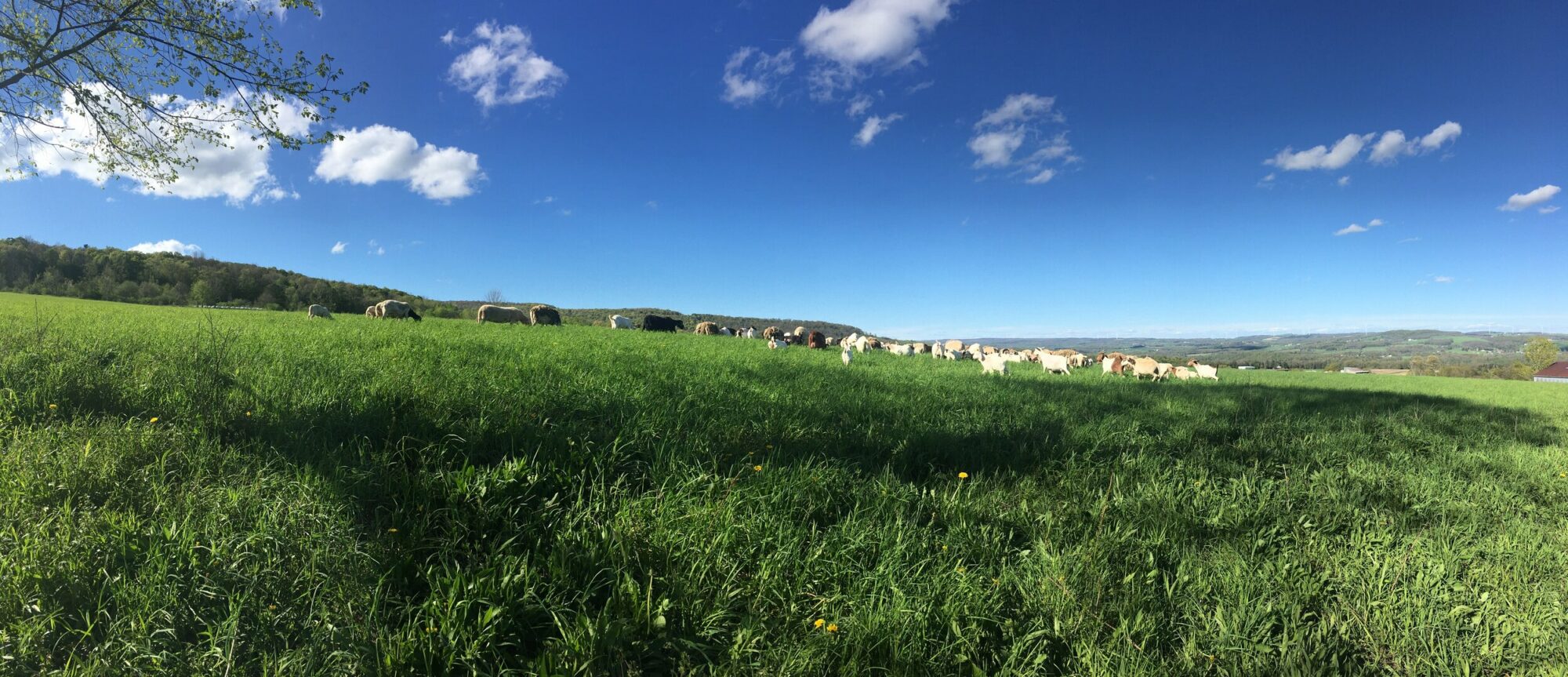While March is still very much “winter” for those of us in Central New York, it signals the beginning of the end. The longer daylight hours mean I’m not doing chores in the pitch dark anymore, a very welcome change. The laying hens sense the increasing hours of daylight and switch into high gear, pumping out more eggs than I can sell. On the best days, I can smell the coming spring in the air. My own excitement is echoed by the redwing blackbirds and their insistent chatter—a sure sign that spring is right around the corner.
It’s easy for me to get quite fidgety this time of year. With winter nearing its end, I cannot wait for everything to green up. I’m done with the drab colors, with the mud, with the grey skies. I’m ready for the bright green shoots to emerge from the earth and for the brilliant green buds to light up the sleeping trees. March, especially with St. Patrick’s Day on the 17th, is all about the color GREEN!
“Green” makes me think of the old saying, “the grass is always greener (on the other side of the fence).” I use it literally (and often) when the goats decide they don’t want to stay in their paddock—with its perfectly green and delicious grasses—and escape to a neighboring field with pickings no better than the first. I understand and can even forgive them when they escape their fencing in the fall, when the smells of wild apples or our neighbor’s ripening corn call to them much like mermaids to sailors of ancient legend.
But in the spring, when every pasture is lush and they have plenty to eat, what drives them to seek out something “better”? And do they realize they’ve been duped by their senses when they finally get to where they wanted to go? Do goats ever experience regret?!? (The answer to this one is easy: NO!)
I understand the compulsion: I, too, am an optimist. I’m attracted to possibilities. I am absolutely lured by the latest app or new piece of equipment that promises to make my job or products better in some concrete way. Dreaming about the unknown is so much fun!
The phrase “the grass is always greener” also alludes to the mistaken assumption that someone or something is better than one’s own current situation. It refers to the trap we can sometimes find ourselves in when we’re comparing ourselves to others. I’ll use the phrase figuratively when my thoughts jealously wander to how well a competitor appears to be doing, or when our kids wax rhapsodic about a classmate vacationing in Florida (again). It is truly silly to make these comparisons, unless the goal is to make yourself perfectly miserable.
“The grass is always greener” is the absolute first phrase that comes to mind when I hear someone remark how wonderful life on our farm must be. I’ve heard words like “romantic,” “peaceful,” “picturesque,” “idyllic,” even “heavenly” to describe the life on our farm and on farms like ours. While I enjoy our farm life and the work we do, I would never describe it using any of these terms. I often miss my 9-to-5 job with its comprehensive health insurance and 401k. Even after the most stressful day, I could leave work behind and enjoy a carefree evening or a long weekend. I actually had “off hours”—imagine that! And at the end of the workweek, I always got a paycheck.
From a distance—from the outside—it is easy to assume local farms are in good shape. Anyone who has driven by our farm in the last two years would have seen a brand new building go up. Things must be great at the Joneses! Or take, for example, the new tractor on the corner dairy farm. Looks good, doesn’t it? Nothing makes a farm look more profitable and successful than a shiny new piece of equipment in the yard.
But the reality may be quite different: It’s easier to get a loan on new equipment than old; banks would much rather repossess something that is easy to resell. It is also quite possible that the farmer is far behind in her tractor payments, but the dealership has little to no hope in reselling the tractor to someone else. Farm bankruptcies and closures mean fewer farmers are in the market to buy equipment and services, so dealers, feed mills, and trucking companies are all holding on and waiting for better times…much like I am waiting for spring and sales to pick up so I can pay my bills.
Romanticizing agriculture and farm life is not new, but as knowledge and geographical rifts between farmers and consumers continue to grow, this idealization will grow too. I see this as a genuine problem for struggling farmers who generally feel unseen, unheard, and misunderstood. In a nutshell, that is exactly what drives me to write this column every month—shortening the distance between farmers and non-farmers.
I understand why the goats escape their fencing. Those pastures look so green from a distance!
